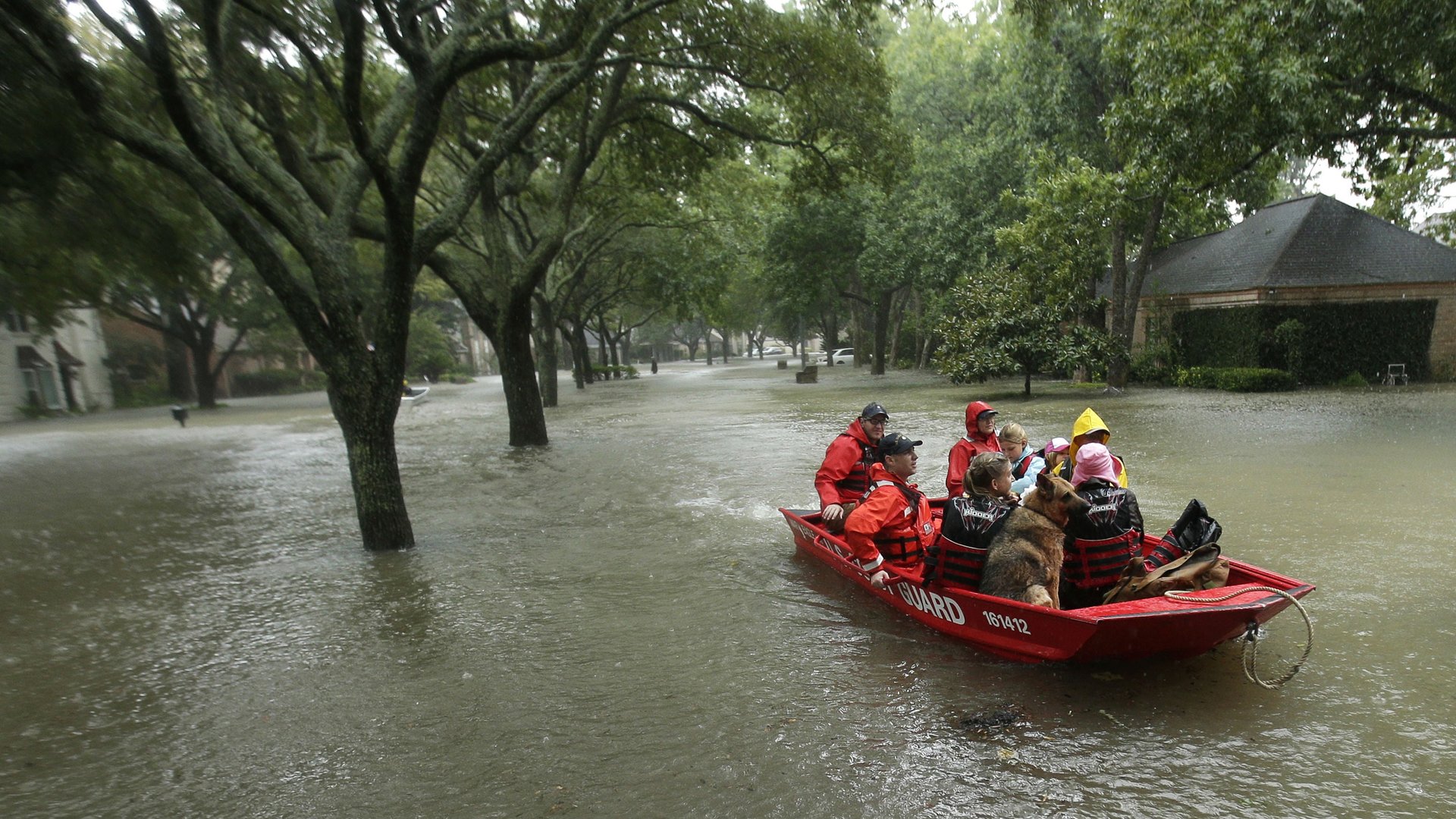The water flooding Texas right now is probably filled with infectious bacteria
Some of the billions of dollars worth of damage Harvey has inflicted upon Texas has been on sewer systems, which means that the torrential rain is mixed with untreated water that probably contains human waste.


Some of the billions of dollars worth of damage Harvey has inflicted upon Texas has been on sewer systems, which means that the torrential rain is mixed with untreated water that probably contains human waste.
“Certainly, there can be contamination with high levels of water—fecal contamination, things like that,” Phil Huang, medical director for Austin Public Health, told NPR.
In particular, officials are worried about the spread of tetanus, and infection caused by the bacterium Clostridium tetani. This type of bacteria winds up in the bloodstream when puncture wounds get dirty from soil, spit, or fecal matter. It takes anywhere from three days to three weeks for problems to surface. And when they do, it’s bad. Colloquially, the worst iteration is known as lockjaw because patients lose the ability to move their mouths from muscle spasms the infection induces, which can be fatal. Normally, this kind of infection is really rare in the US; vaccines are available for children, and booster shots are recommended for adults every 10 years.
Texas health officials have already started requesting extra doses of the booster, which can prevent full-blown lockjaw if given in time. The biggest concern is that floating debris may be enough to cause puncture wounds in people who are stranded and their rescuers.
Drinking water also at risk
Flood waters are likely contaminating drinking supplies as well. Newsweek reports that two drinking-water reservoirs had been drained in an attempt to cope with flooding. In order to avoid infections from E. coli, Shigella, and Vibrio bacteria, which cause illnesses similar to food poisoning, officials are urging residents to boil water for at least a minute.
“These types of bacteria can live in mixtures of murky water,” Robert Glatter, an emergency department physician based in New York, told CBS News. Glatter is also concerned that there may be outbreaks of cholera, hepatitis A and typhoid fever, all of which can be spread through dirty water.
An uptick in infectious diseases is common after flooding or other disasters. In Yemen, there are hundreds of thousands of suspected cholera cases as a result of war, and at least five people died from infectious diseases after Hurricane Katrina hit Louisiana in 2005.
In healthy populations, a lot of these infections aren’t lethal—just incredibly unpleasant. Dehydration, though, may pose a serious threat to those who are unable to reach clean drinking water. Those with weakened immune systems, like young children or the elderly, may get sicker from these diseases. Antibiotics can also treat some of these illnesses, although this means the drugs would have to make it to patients. More than 20 hospitals are closed or have been evacuated, although there are more than 120 in the affected area.
The best advice public officials have been giving is to stay out of the water. For the residents and first responders within the maximum flood zone, that isn’t really an option.